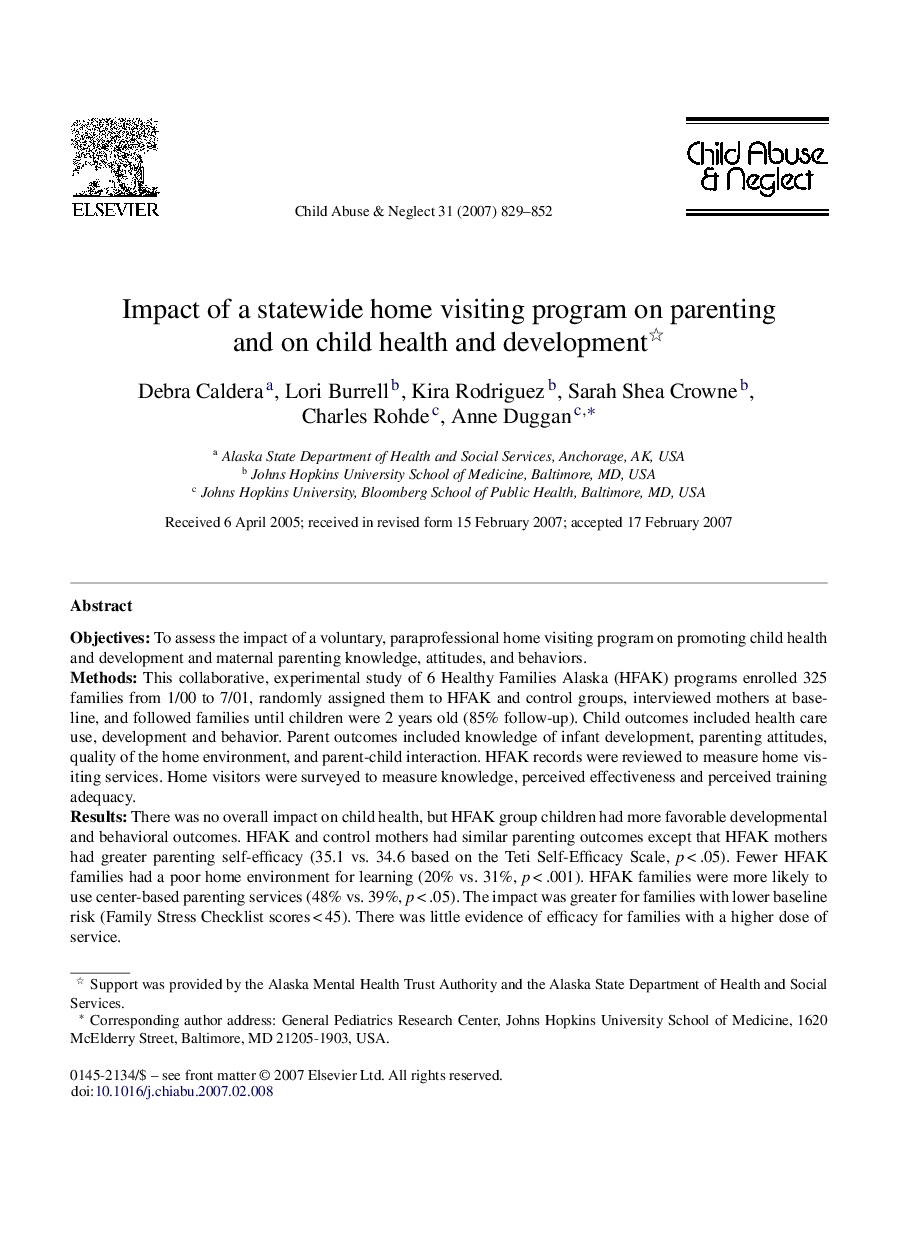| کد مقاله | کد نشریه | سال انتشار | مقاله انگلیسی | نسخه تمام متن |
|---|---|---|---|---|
| 345411 | 617515 | 2007 | 24 صفحه PDF | دانلود رایگان |

ObjectivesTo assess the impact of a voluntary, paraprofessional home visiting program on promoting child health and development and maternal parenting knowledge, attitudes, and behaviors.MethodsThis collaborative, experimental study of 6 Healthy Families Alaska (HFAK) programs enrolled 325 families from 1/00 to 7/01, randomly assigned them to HFAK and control groups, interviewed mothers at baseline, and followed families until children were 2 years old (85% follow-up). Child outcomes included health care use, development and behavior. Parent outcomes included knowledge of infant development, parenting attitudes, quality of the home environment, and parent-child interaction. HFAK records were reviewed to measure home visiting services. Home visitors were surveyed to measure knowledge, perceived effectiveness and perceived training adequacy.ResultsThere was no overall impact on child health, but HFAK group children had more favorable developmental and behavioral outcomes. HFAK and control mothers had similar parenting outcomes except that HFAK mothers had greater parenting self-efficacy (35.1 vs. 34.6 based on the Teti Self-Efficacy Scale, p < .05). Fewer HFAK families had a poor home environment for learning (20% vs. 31%, p < .001). HFAK families were more likely to use center-based parenting services (48% vs. 39%, p < .05). The impact was greater for families with lower baseline risk (Family Stress Checklist scores < 45). There was little evidence of efficacy for families with a higher dose of service.ConclusionsThe program promoted child development and reduced problem behaviors at 2 years. Impact could be strengthened by improving home visitor effectiveness in promoting effective parenting. Future research is needed to determine whether short-term benefits are sustained.
Journal: Child Abuse & Neglect - Volume 31, Issue 8, August 2007, Pages 829–852